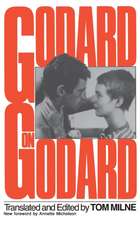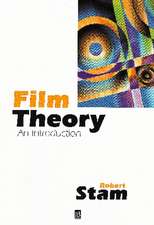Conspiracy Theory in Film, Television, and Politics
Autor Gordon B. Arnolden Limba Engleză Hardback – 29 sep 2008 – vârsta până la 17 ani
Preț: 363.98 lei
Preț vechi: 479.05 lei
-24% Nou
Puncte Express: 546
Preț estimativ în valută:
69.66€ • 75.64$ • 58.51£
69.66€ • 75.64$ • 58.51£
Carte tipărită la comandă
Livrare economică 22 aprilie-06 mai
Preluare comenzi: 021 569.72.76
Specificații
ISBN-13: 9780275994624
ISBN-10: 0275994627
Pagini: 200
Dimensiuni: 156 x 235 x 23 mm
Greutate: 0.45 kg
Editura: Bloomsbury Publishing
Colecția Praeger
Locul publicării:New York, United States
ISBN-10: 0275994627
Pagini: 200
Dimensiuni: 156 x 235 x 23 mm
Greutate: 0.45 kg
Editura: Bloomsbury Publishing
Colecția Praeger
Locul publicării:New York, United States
Notă biografică
GORDON B. ARNOLD is Professor of Liberal Arts at Montserrat College of Art in Beverly, Massachusetts, where he has taught courses in film, media, and politics for many years. He was previously a reference librarian and library director at public and academic libraries. His publications include the book The Politics of Faculty Unionization (2000), as well as articles in Library Journal, Change, and Labor Studies Journal.
Cuprins
Chapter 1 Conspiracy Theory in the American ImaginationChapter 2 The Red Menace and Its DiscontentsChapter 3 Conspiracy in the New FrontierChapter 4 Shock and UpheavalChapter 5 Scandal and SkepticismChapter 6 Vision and Re-VisionChapter 7 A New Age of ConspiracyChapter 8 Belief and Disbelief
Recenzii
Conspiracy Theory in Film, Television and Politics provides a strong historical overview of conspiracy theory offering examples and explanations of how conspiracy theory explanations have penetrated mainstream American thought. From the evolution of social and political events nurturing popular ideas of various conspiracy theories to how conspiracies were interpreted in film, TV and politics, this is an excellent in-depth survey suitable for any college-level library strong in social issues.
Arnold targets less-experienced readers interested in the phenomenon of conspiracy-or, more precisely, conspiracy theory-as approached from the angle of the liberal arts. He places seeming conspiracies in the context of the histories of the social and political cultures that harbor them or invoke them as explanations of otherwise inexplicable events. Thus, the book is neither political nor mass media history, but rather a synthesis of how a society under stress that often has its origins in an external source (e.g., Soviet expansionism during the Cold War) explains an apparent loss of military superiority. Recommended. Lower-division undergraduates and general readers.
Arnold targets less-experienced readers interested in the phenomenon of conspiracy-or, more precisely, conspiracy theory-as approached from the angle of the liberal arts. He places seeming conspiracies in the context of the histories of the social and political cultures that harbor them or invoke them as explanations of otherwise inexplicable events. Thus, the book is neither political nor mass media history, but rather a synthesis of how a society under stress that often has its origins in an external source (e.g., Soviet expansionism during the Cold War) explains an apparent loss of military superiority. Recommended. Lower-division undergraduates and general readers.










